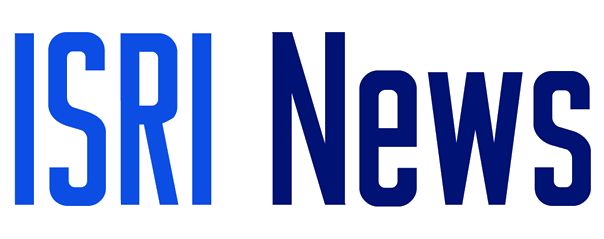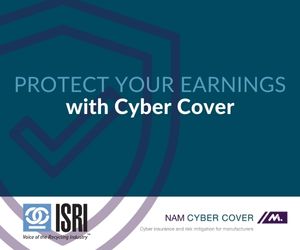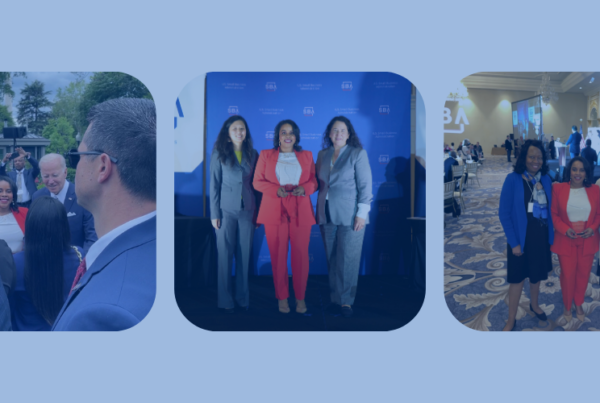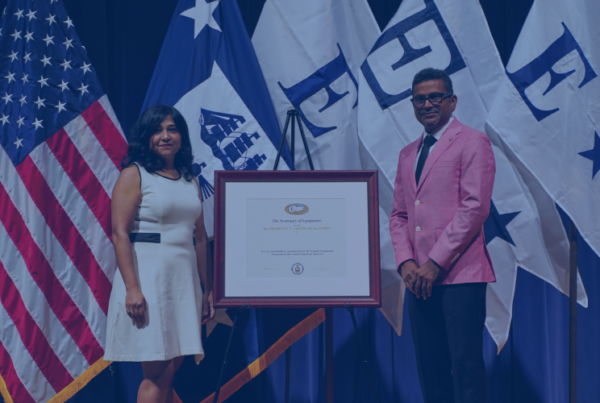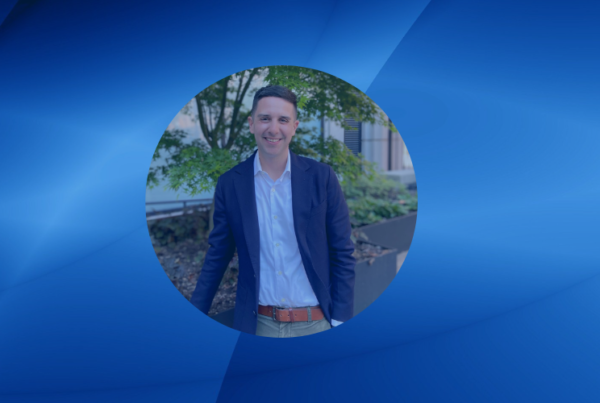As a young man, Kripke Enterprises CEO Matt Kripke never envisioned himself working in the scrap industry. But when his father Larry got sick in 1994, Matt began working for Kripke Enterprises, a family-owned nonferrous scrap metal brokerage. Within a month or so, he fell in love with the business. Scrap News recently spoke with Matt about taking over as CEO, and the importance of your job’s values aligning with your personal values.
Your father Larry started Kripke Enterprises in 1993, and you started working for the company in 1994. What drew you to the business, and did you envision yourself making a career there?
My dad, my grandfather and my uncles sold their business in 1983 to a large regional scrap company called OmniSource. At the time I was 15, and my dad asked me how I felt about us selling the company. I said I felt great about it. He said that he had always envisioned us one day working together, and I told him that I’m never going to want to work in the scrap industry, so they should definitely sell it.

In 1993 [my dad] started Kripke Enterprises. I got involved in 1994 because he got sick, and at the time he was a one-man trading operation. I was working for a different family business, but I volunteered to take my dad’s calls, even though I didn’t know about the commodities or what people were asking about. So, I started taking the phone calls. I would go up to the hospital at lunch, review the phone calls with him, and he would tell me who to shop the material to and who to offer it to. We would meet twice a day to discuss these things. After 30 days of trial by fire, I realized I liked his business more than what I was doing at the time. When he went back to work, I told him I wanted to join him on a permanent business.
I didn’t see it being a career, and I didn’t see myself being there for 30 years. I just saw what I liked about it, which was the instant gratification. This business also allows me to do the two things I love: make the world a better place, and create opportunities for others. Beyond the instant gratification, that’s probably why I fell in love with the business.
You all have three core values: “Relationships are the backbone of our business; We provide solutions; We do what we say.” What is the importance of these values?
We filter every decision through those values, and we teach all of our employees to do the same. [Employees] know that when we say something, it’ll be honored. That gives them the confidence to treat our customers and our consumers the same way, because they know that if they promise something, we’re going to honor it. We’re not going to pull the rug out from underneath them and make them look bad.
My dad said that anyone can do what we do, but it’s when things go bad that you prove where you provide value. There are going to be a lot of issues you run into in this industry. When there are problems, a lot of people call and say, “You have a problem.” It’s very subtle, but my dad taught us that when we make calls not to say, “You have a problem,” but “We have an issue here.” We also make sure we have two potential solutions before we even call [a customer] to tell them there’s an issue. In a commodity-based business, we’re a unique company to deal with because we focus on helping people come up with solutions as their friend, and following through on processes.
What did the process look like for you to become the new CEO of Kripke Enterprises?
The process began 10 years ago when my dad and I sat down and started talking about his plans, his exit strategy, and how much longer he wanted to work. We came up with a 10-year plan where I agreed to buy him out over 10 years. We have one year left on that plan.
The agreement was that near the end of the 10 years, I would transition to take over as CEO and he would continue to coach me along. He’s an excellent teacher and an excellent mentor. Over the years, I’ve learned from him, observed how he treats people, and seen that his focus was trying to develop people. We’re in a commodity-based business, but he was really good at taking an interest in people’s careers and, more importantly, in their lives, to try to make them better.
Now that you’re CEO, what are some of your short-term and long-term goals?
Four years ago, we acquired an aluminum coil broker called Mid South Aluminum, and that has been a home run for us, as well as the seller of the company, who has stayed with us and fit into our team perfectly. We’ve been very successful in helping them scale up and grow. Short-term, we’ll be looking for more acquisitions. In the long term, we have a corporate goal to hit $500 million in overall sales by 2027. Our biggest year that we’ve had, combined with all the divisions, was just over $200 million, so we’ve got a long way to go. Last year was quite a setback in the wake of COVID-19 and commodity prices being lower.
Another long-term goal of ours is to create opportunity for personal growth for all of our employees. We find that if we create opportunities for them to grow as individuals, then they’re successful in creating value here, and they’re invested in the success of the company.
Can you tell me about your involvement with ISRI over the years, and what are some of your fondest memories working with the association?
I’ve served as president of my chapter. I’ve served as the chairman of several committees, and served on the national board for about 10 years. I miss not being as involved, but it was time for me to step aside to allow other people to grow as individuals, and I’m really proud of the work that people are doing. As a company, we feel it’s incredibly important to support ISRI and take advantage of the programs available to us. I can say that joining ISRI from the very beginning and staying involved all these years was hands down the best investment we’ve made as an organization.
The fondest memories I have are the relationships I’ve made from going to meetings and having incredible dinners with people who become your friends. I didn’t join ISRI with the intention of developing relationships. I joined to learn, to better myself and to be involved in the industry, and to help make the world a better place. The side benefit of joining is the people we’ve developed friendships with.
What are you looking forward to the most about ISRI2021?
A virtual event allows you to not miss things. You can partake in as much or as little as you want, but I’m guessing that most people are going to participate in a lot more things than they would have if it was an in-person event. If it was an in-person event, you’d do a lot more networking. While you can’t do as much of that virtually, I think you can do more learning.
I’m very excited about [Day 1 Keynote speaker Chef] José Andrés. I feel like his core values line up pretty well with mine. He’s constantly looking for ways to help people and create opportunities for others, and to make the world a better place. I love it and I’m excited to hear from him.
I’m also excited about the virtual format of the exhibit hall. We’ve been growing very rapidly here at Kripke Enterprises. We’ve got a physical operation now and we’re going to be shopping for equipment. When you’re at the convention hall at an in-person event, you can only look at so many things walking around. This year, we’re going to have plenty of time to see everything and really engage with exhibitors. I think it might actually be easier to engage with the exhibitors in a virtual format. I wouldn’t be surprised if moving forward, exhibitors will have an opportunity to engage virtually with someone who’s not coming to the convention. I’m looking forward to seeing the way this year is going to change the convention going forward.
